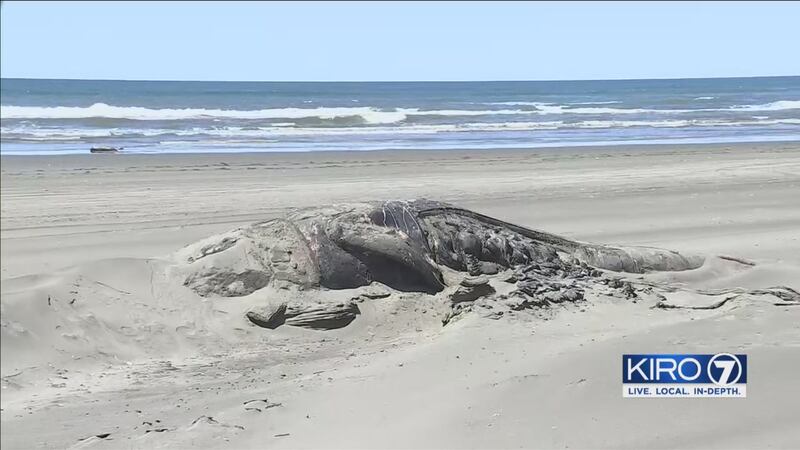The bodies of 10 gray whales lay beached along the West Coast.
Cascadia Research biologist John Calambokidis worries this could be just the tip of the iceberg.
“This is well above the average and we’re pretty early in the year. The main mortality we see is in April, May and June and that coincides with the end of their seasonal fasts, so if they didn’t get quite enough to eat last year, they’re not quite able to make it through to the next feeding season,” said Calambokidis.
Scroll down to continue reading
More news from KIRO 7
- One dead in fiery multi-vehicle crash blocking I-5 in Conway
- Seattle crane collapse: Details about the victims, survivors
- Hunt for 79-year-old store owner’s killers continues
- PHOTOS: One dead in 8-vehicle crash in Skagit County
- Do you have an investigative story tip? Send us an email at investigate@kiro7.com
The whales have been found on beaches from Elliot Bay to Long Beach and Ocean Shores.
They feed on creatures on the bottom of the sea, but exams show the whales aren’t getting enough to eat.
“It’s a concern right now, but what it looks is happening is we have a gray whale population that has recovered from whaling, but is potentially hitting a limit of food supply because that’s why so many of the animals are skinny,” said Calambokidis.
Tuesday, KIRO 7 spoke with Ocean Shores residents who came to see the whale and take pictures.
“That’s not a good thing, if oceans die, we’ll follow,” said Michael McKeon.
“It’s really sad, it’s really sad,” said Andrew Katsikapes.
Many more whales are likely dying. About 10 percent wash ashore.
“The dead animals we see only represent a fraction of the true animals dying. Emaciated animals will sink when they die and they’ll never be discovered,” said Calambokidis.
Between 1999 and 2000, a record 50 dead gray whales were found on Washington beaches. Experts hope history doesn’t repeat itself this year.
More necropsies are scheduled this week for whales washed up on more remote areas of the state.
To report a dead, injured or stranded marine mammal anywhere in Washington state, call the West Coast Marine Mammal Stranding Hotline at 1-866-767-6114.
Cox Media Group








